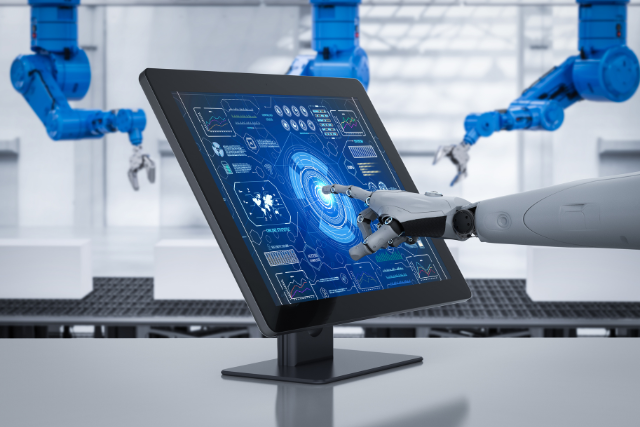The buzz surrounding AI in healthcare is undeniable. Artificial intelligence (AI) is transforming healthcare with breathtaking speed, reshaping diagnostics, treatment planning, and even administrative workflows. From detecting diseases faster than a human eye can spot them to predicting patient outcomes with uncanny precision, AI’s potential to outperform doctors in certain tasks is undeniable. For instance, a study published in The Lancet Digital Health highlighted that AI systems outperformed radiologists in identifying breast cancer, showcasing accuracy levels up to 99%.
However, as we marvel at these advancements, one critical question remains: Is efficiency alone enough to define the future of healthcare?
Healthcare, after all, is not merely about achieving clinical outcomes; it’s about fostering trust, ensuring empathy, and addressing the deeply human experience of illness and healing. This is where nostalgic jobs—those rooted in personal connection, empathy, and ethical care—become irreplaceable. Far from being obsolete, these roles are essential in preserving healthcare as a profoundly human endeavor.
What Is a Nostalgic Job?
A nostalgic job refers to a profession or task that evokes a sense of familiarity, comfort, or reminiscence due to its alignment with traditional practices or human-centric roles. These jobs often focus on emotional intelligence, human connection, and personalized care, which can sometimes feel overshadowed in an increasingly automated and tech-driven world. In healthcare, nostalgic jobs might include roles like patient care coordinators, bedside nurses, or therapists who focus on holistic, hands-on, and empathetic interactions with patients.
Why It’s Important to Explore the Role of Nostalgia in the Age of AI
Is AI now a necessary tool? Absolutely. It’s like an unexpected innovation that, once introduced, becomes indispensable—something you didn’t realize you needed until it seamlessly transformed the way you work and think. Tools like predictive analytics, machine learning algorithms, and robotic process automation are improving efficiency and outcomes. However, these advancements also raise concerns about depersonalization in patient care.
The essence of nostalgic jobs lies in bridging the gap between technological advancements and the human touch, ensuring that healthcare remains compassionate and patient-centered even as it embraces AI. While studies suggest that AI algorithms can outperform doctors in specific applications, such as medical imaging and early disease detection, they highlight the importance of complementing AI’s precision with human empathy.
For instance, a 2020 study published in The Lancet Digital Health found that AI systems could diagnose breast cancer with greater accuracy than human radiologists, underscoring AI’s potential to enhance healthcare. But is efficiency alone enough to define the future of healthcare?
While AI’s capabilities may address technical challenges, they fail to encompass the emotional, ethical, and relational complexities that form the backbone of patient care. Making it essential to explore the tension between technological prowess and the enduring value of nostalgic jobs.
Efficiency Is Not the Same as Compassion
AI systems, no matter how sophisticated, cannot replicate human qualities like empathy, reassurance, and the ability to interpret unspoken emotions. These elements are often as important to patient outcomes as clinical accuracy.
- The Human Element: A patient undergoing a stressful cancer diagnosis, for example, may value the comforting presence of a nurse or doctor more than a perfectly accurate AI-generated treatment plan.
- Research Insight: A 2022 Harvard Medical School study showed that patients who reported feeling “heard” and “understood” by their healthcare providers were 30% more likely to adhere to treatment plans, compared to those who didn’t.
AI May Outperform Doctors in Specific Areas, But It Can’t Replace Them Entirely
AI excels in tasks that require analyzing data at scale—reading radiology scans, identifying anomalies, and even predicting disease progression. However, healthcare is more than just diagnosis and treatment; it’s about holistic care.
- Limitations of AI: AI doesn’t consider cultural nuances, individual preferences, or socio-emotional dynamics when recommending care. A social worker or primary care physician, on the other hand, can account for these factors in creating tailored care plans.
- Example: In mental health, while AI can analyze speech patterns to detect signs of depression, it cannot replicate the therapeutic relationship between a patient and a counselor that fosters long-term healing.
Patients Are Not Just Data Points
AI systems view patients through the lens of data—symptoms, biomarkers, and trends. However, patients experience illness as a deeply personal journey, where the mind, body, and emotions are intertwined. Nostalgic jobs bring this human dimension to the forefront.
- Why It Matters: A recent Pew Research Center report revealed that 70% of patients believe personal interaction with healthcare providers improves their overall experience, even if AI is used to assist in clinical decision-making.
- Ethical Oversight: AI’s reliance on data raises ethical concerns, such as bias in algorithms or decisions that prioritize cost-efficiency over patient well-being. Nostalgic jobs ensure that care remains grounded in humanity and ethics.
Trust and Transparency Are Essential in Healthcare
Trust is central to the patient-provider relationship. While AI might deliver faster and sometimes more accurate results, it struggles to inspire trust because of its “black-box” nature—patients and even doctors don’t always understand how decisions are made.
- Contrast with Nostalgic Jobs: Doctors, nurses, and other human caregivers earn trust through transparent communication, active listening, and emotional presence—qualities AI cannot replicate.
- Survey Data: According to a 2023 Deloitte study, 65% of patients said they would hesitate to accept an AI-generated treatment plan unless it was reviewed and explained by a healthcare provider.
Healthcare Is About More Than Outcomes
AI often focuses on achieving the best possible clinical outcome. While this is undeniably important, healthcare is also about how care is delivered. Nostalgic jobs ensure that the process of receiving care is as meaningful as the outcome.
- Example: A patient undergoing chemotherapy might appreciate the small acts of kindness from a nurse—holding their hand during a procedure or remembering personal details about their life. These moments create a sense of dignity and humanity that technology cannot provide.
Why This Conversation Is Critical
Exploring the role of nostalgic jobs in an AI-driven healthcare system is vital because it challenges us to think about what we value in medicine. Do we want a system that prioritizes only speed and accuracy, or one that balances these qualities with empathy and personalization?
AI’s potential to outperform doctors in certain areas is impressive, but it should serve as a complement—not a replacement—for the human touch. By fostering a healthcare ecosystem where AI handles repetitive, data-driven tasks and nostalgic jobs preserve the relational aspects of care, we can ensure that technological progress enhances rather than diminishes the patient experience.
The healthcare systems of the future must strike a balance, leveraging AI for its computational power while preserving the irreplaceable value of human connection. This collaboration ensures that care is both technically excellent and deeply humane.





